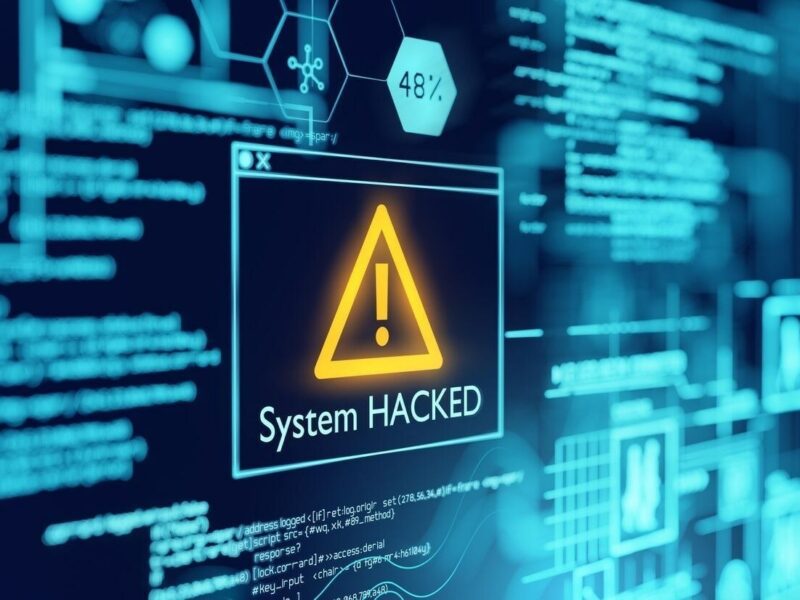
CYBER SECURITY TRENDS AND CAREERS IN 2023
The cyber security industry is rapidly expanding, and it’s estimated that more than 3.5 million cyber security jobs will be available by 2023.
From Cyber Security analysts to data scientists and network engineers – the various cyber security career paths seem overwhelming.
But with growing cyber threats, cyber security training and qualifications are now more important than ever before.
In this blog post, we’ll look at the cyber security trends and popular careers for 2023, and how online cyber security courses can help you get ahead of the competition.
So, let’s dive into preparing for a successful cyber secure future!
Latest Cyber Security Trends In 2023
In 2023, cyber security will continue to be a leading priority for organizations of all sizes.
We can expect to see emerging trends, such as the increased use of artificial intelligence and machine learning tools to detect potential threats at an earlier stage, and improved defense against phishing attacks.
- Cyber Security emerging trends that we expect to become more commonplace in the near future include the implementation of data encryption as a means of preventing unauthorized access to private and confidential information.
This can often mean enabling two-way authentication on applications, introducing dynamic user access rights, or simply having staff educated in Cyber Security while being regularly trained on any changes or potential risks.
Enhancing user authentication processes is also expected to become a major focus, with the adoption and development of cutting-edge technologies like biometrics and multi-factor authentication becoming increasingly commonplace. These technologies can drastically increase Cyber Security measures for digital business platforms and networks, protecting company information from malicious actors.
- Automation of certain cyber security tasks such as logging and erasing malicious code has become increasingly popular as it allows businesses of any size to save resources and optimize the way their systems are protected from attacks.
Cybersecurity researchers are continuously working towards developing new strategies for automation and cost reduction, allowing organizations to stay one step ahead of cyber criminals who seek to take advantage of any weaknesses.
The latest advancements in computing power have significantly contributed to this process, making automated solutions more efficient than ever before.
- In the near future, Cyber Security will be extended beyond the traditional methods of protection by implementing newer technologies such as real-time fraud detection powered by integrated analytics and biometrics, blockchain technology for secure identity protocols, and cloud authentication methods.
These emerging Cyber Security trends have shown promise in enhancing security protocols to protect an organization from data breaches and other malicious attacks.
- Emerging technologies such as the Internet of Things (IoT) bring new challenges that must be addressed. To bridge these security gaps for emerging applications, enterprises are increasingly looking towards quantum computing for answers. Quantum technology proposes a secure, tamper-proof infrastructure due to its unique properties.
And as cyber criminals become more sophisticated, it is imperative for companies to stay up-to-date on the newest advancements in cyber security technology so that their systems are prepared for the ever-evolving evolution of digital threats.
Cyber Security Careers
Cyber Security is a vital and growing industry.
Employment in this field is expected to increase dramatically over the next decade, making it an immensely attractive career path for those with an interest in technology and computer systems.
Cyber security professionals build, maintain and protect systems that contain sensitive information, providing an invaluable service to their clients and employers. These careers require strong analytical skills, excellent problem-solving like mindedness, as well as a highly customer-oriented personality.
Those looking for a challenging but rewarding career have no better option than a cyber security position; from entry level positions to more specialized roles, there are many unique opportunities available around the world.

Top 7 Cyber Security Career Paths
1. Cyber Security Analyst
As a Cyber Security Analyst, you would be the one to test networks, systems and applications for vulnerabilities and take a proactive approach in mitigating risk via detection, response, and prevention.
The role of Cyber Security Analysts includes staying informed on the latest disruptive trends, researching best practices for security architecture development, testing security systems to ensure they properly detect cyber threats, implementing network infrastructure components and IT policies to protect company data, finding innovative technologies to enhance security protocols, and training company staff on safe online practices.
2. Information Security Manager
The role of an Information Security Manager is complex and evolving as technology advances. As a security manager, it is their responsibility to ensure confidential information and data systems are secure from external threats. This can include instituting strong passwords, patching vulnerabilities and establishing certain protocols for employee access privileges.
In addition to monitoring aspects of cybersecurity, the security manager must regularly audit existing systems for potential threats and devise strategies for responding to events like cyber breaches.
3. Penetration Tester (Ethical hacking)
Penetration testers, sometimes referred to as ‘ethical hackers’, are information security professionals tasked with the very important role of proactively assessing, evaluating and improving an organization’s network and system security.
For ethical hacking, a variety of tools and techniques are used to identify vulnerabilities in networks or applications that may be exploited by malicious actors such as hackers or infiltrators.
Other responsibilities of a penetration tester for ethical hacking include performing vulnerability assessments, analysing results and providing detailed written reports on findings, showing how vulnerabilities can be mitigated.
4. Network Security Engineer
Network Security Engineers play an essential role in any organization’s cyber security strategy. These cyber security professionals develop, manage, and maintain computer networks that are secure and protected from malicious threats.
Network Security Engineers are responsible for the configuration and installation of firewalls, intrusion detection/prevention systems, antivirus software, virtual private networks (VPNs), and other security related technology to ensure the safety of sensitive network data. Ultimately, they are tasked with defending the integrity of company networks against malicious attack while maintaining high levels of performance.
5. Malware Analyst
A Malware Analyst is a tech professional who specializes in identifying and mitigating threats of malicious software. They use their knowledge of computer science, networking, digital forensics, malware analysis and reverse engineering to detect, track and recover from security incidents and cyber-attacks.
Their responsibilities include analysing malicious software (malware) threats and reverse-engineering viruses and Trojans to identify the source of the attack. They develop strategies that hinder future attacks of similar nature. They also create logs of their findings and use them to create reports to share with other departments or organizations as guidance or to warn against similar threats.
6. Computer Forensics Investigator
A Computer Forensics Investigator plays a vital role in the legal system. They specialize in recovering computer data and analysing it to provide court-admissible evidence when analysing computers and other digital components as part of criminal or civil investigations. By utilizing expertise in cybersecurity, software engineering, cryptology, network forensics, data recovery and more, Computer Forensics Investigators can uncover important files that may have been deleted or hidden by criminals.
Computer forensics investigators rely on tools such as encryption algorithms and forensic imaging tools to preserve all the digital evidence.
7. Chief Information Security Officer (CISO)
The Chief Information Security Officer (CISO) is responsible for establishing and maintaining the overall vision, strategy, and program to ensure information security across an organization. The CISO ensures that the organization’s data is protected from any potential threats by developing, implementing, and enforcing appropriate policies.
Additionally, the CISO will audit and assess the current security measures in place for all information systems within the organization to maintain its integrity. A CISO must not only have technical cyber security skills and be proficient in developing and implementing cybersecurity strategies, but should also have superb organizational skills for overseeing various operations and personnel.

Qualifications And Skills Are Needed For Cyber Security Jobs
Technical Skills:
For cyber security jobs, employers typically look for individuals with a degree in cyber security or a related field such as engineering or information technology and relevant certifications that demonstrate their knowledge and experience in cyber security technologies and processes.
Additionally, having experience with coding languages like Java, Python or HTML is highly beneficial in many cyber security roles, along with familiarity of cyber-attack tools used by hackers to gain access into systems and networks.
Soft Skills:
Though technical skills are essential, cyber security professionals should also possess analytical and interpersonal skills. Communication is essential because candidates are expected to be able to explain complex problems succinctly to non-tech audiences and work collaboratively on projects with both technical and non-technical team members.
Cyber security experts also need to have excellent problem-solving skills and the ability to think critically; this includes having an inquisitive mindset which allows them to maintain attention to detail while searching for possible vulnerabilities in computer systems.
7 Best Cyber Security Certifications In 2023
In the digital age, cyber security certifications are becoming increasingly important. Cyber security certifications provide individuals with the knowledge and skills needed to detect, analyze and respond to cyber incidents. Top 7 Cyber Security Certifications In 2023 are:
1. CompTIA Security+
CompTIA Security+ is a globally recognized certification that validates the baseline skills necessary for a career in IT security. The exam covers topics such as risk management, network security, cryptography, and identity and access management.
2. Certified Information Systems Security Professional (CISSP)
The CISSP is a globally recognized certification that indicates expertise in information security. To earn the CISSP, candidates must have at least five years of experience in two or more of the 10 CISSP domains. The exam covers topics such as asset security, security engineering, communication and network security, and identity and access management.
3. Certified Ethical Hacker (CEH)
The CEH is a certification that validates an individual’s ability to identify, assess, and mitigate risks in an organization’s network infrastructure. The exam covers topics such as footprinting and reconnaissance, scanning and enumeration, social engineering, and denial-of-service attacks.
4. GIAC Security Essentials Certification (GSEC)
The GSEC is a certification that validates an individual’s knowledge of basic information cyber security concepts. The exam covers topics such as risk management, network security, cryptography, and access control.
5. Certified Information Systems Auditor (CISA)
The CISA is a globally recognized certification that indicates expertise in auditing, control, and security of information systems. This cyber security certifications exam covers topics such as IS audit process, governance and management of IT, information systems acquisition, development and implementation, and protection of information assets.
6. Certified in Risk and Information Systems Control (CRISC)
The CRISC is a globally recognized certification that indicates expertise in identifying, assessing, and mitigating enterprise IT risks. The exam covers topics such as risk identification, assessment and response; incident response; business continuity planning; disaster recovery planning; and compliance with laws and regulations.
7. Cybersecurity Incident Response Training Course
This course provides cyber security professionals with knowledge on responding to cyber incidents, such as malware attacks and data breaches, engaging instruction on incident management best practices, risk assessment guidelines, data breach handling protocols, IT forensics essentials, post-incident analysis tips, and more.
Final Thoughts
As cyber-attacks and threats continue to increase across industries, there’s no better time than now to get cyber security certified and be cyber security specialists.
No matter if you are an intern in a cyber security team, a security architect, a cyber security engineer, or a cyber security specialist like certified Information Security Manager or for that matter any cybersecurity professionals, with an array of different cyber security courses and Cyber Security Online Training programs available, you can strengthen your cyber security skill set and stay ahead in this dynamic field of cyber security in 2023 and beyond.
We hope that by now, you have a better understanding of cyber security trends and how to learn cyber security at your own pace and prepare yourself for a successful career in cyber security by 2023.
Good luck!





